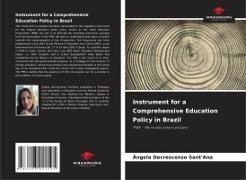Read more
This study aims to analyse the ideas represented in the regulatory instrument for the Integral Education public policy, known as the 'More Education Programme' (PME). Our aim is to describe the normative dimension resulting from the formulation of the PME. We want to understand what logics of action underlie the implementation of this Programme. The Programme has been implemented since 2007 by the Ministry of Education and Culture (MEC), since Interministerial Ordinance No. 17 of 24 April 2007 in Brazil. Its activities began in 2008 in public schools that had a low IDEB (Basic Education Development Index), i.e. their students had a school development index below that established by the Ministry of Education. The PME is the result of an inter-ministerial and inter-governmental proposal, as a strategy for the inclusion of full-day education, aimed at promoting socio-educational activities in the school day, to be developed both inside the school and in other pedagogical spaces. The PME is betting that the expansion of time and spaces can be a solution to the problems of school quality.
About the author
Ângela Decrescenzo Sant'Ana si è laureata in Pedagogia e specializzata in Educazione presso l'Università Federale (UFPel -Brasile). Ha conseguito il Master in Scienze dell'Educazione, Amministrazione dell'Educazione, presso l'I E della Facoltà di Lisbona (Portogallo). Attualmente sta studiando per un dottorato di ricerca in Formazione degli insegnanti, supervisione ed educazione speciale presso la stessa istituzione.

